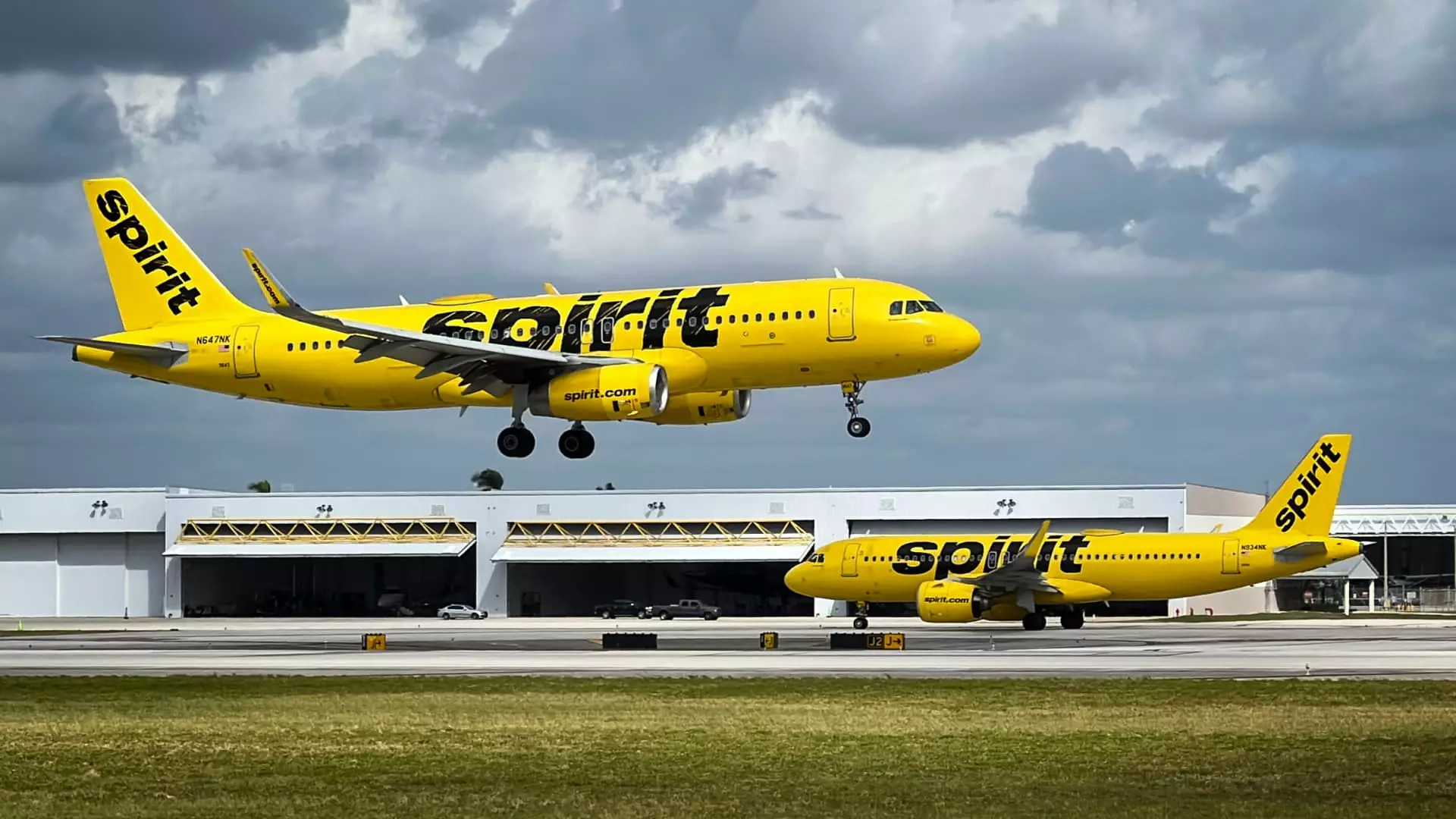In a significant move prompted by escalating security issues in Haiti, the Federal Aviation Administration (FAA) announced a 30-day ban on all U.S. civilian flights to and from the country. This decision follows a harrowing incident in which a Spirit Airlines plane sustained gunfire damage while attempting to land in Port-au-Prince. The temporal nature of this ban indicates the gravity of the current climate in Haiti, which has recently been plagued by unrest and violence.
On Monday, Spirit Airlines Flight 951, which had departed from Fort Lauderdale, faced an alarming situation that forced its diversion to Santiago in the Dominican Republic. The aircraft was reportedly targeted while approaching its destination, leading to a chaotic but ultimately safe landing. Spirit Airlines confirmed that, while one flight attendant suffered minor injuries, all passengers remained unharmed. This incident serves as a stark reminder of the increasing risks associated with air travel in regions facing civil strife.
Responses from Major Airlines
The repercussions of this attack extend beyond Spirit Airlines, with American Airlines also reporting an alarming incident. An American Airlines flight operating between Port-au-Prince and Miami was struck by gunfire during its journey but managed to complete the route without injuries. Following a thorough post-flight inspection, it was determined that the aircraft’s exterior had been penetrated by a bullet, raising serious concerns about air safety in the region.
In light of these threats, American Airlines has announced the suspension of its flights to Port-au-Prince until February 12, reinforcing the need for additional precautionary measures. Similarly, JetBlue Airways has decided to pause its services to Haiti, demonstrating a collective apprehension among U.S. carriers regarding the safety of their operations in an increasingly volatile environment.
Broader Implications for Travelers
The FAA’s regulations extend beyond simply halting flights into and out of Haiti; they also restrict U.S. aircraft from flying under 10,000 feet in Haitian airspace. This precautionary measure highlights the potential dangers that may confront aircraft during their approaches and departures, particularly in areas known to be impacted by civil conflict. The aviation industry’s response is indicative of profound concerns regarding the safety of not just airline crew members, but also passengers who might find themselves in jeopardy during their travels.
For travelers with plans to visit Haiti, this situation effectively places their arrangements in disarray. The prospect of navigating canceled flights and finding alternative transportation solutions amid sociopolitical instability adds an extra layer of complexity to their travel experiences. With the ever-changing landscape in Haiti, potential visitors must stay informed about the situation to make the safest choices regarding their travel plans.
The recent incidents highlight the urgent need for heightened security measures within Haiti, as civil unrest continues to pose threats not only to residents but also to visitors and commercial entities. As airlines reassess their operational capacities in the face of these challenges, it becomes imperative for authorities to address the root issues contributing to the country’s instability. The FAA’s decisive actions underscore a broader acknowledgment of the risks present in Haiti, signaling a crucial moment for both the aviation industry and international policymakers to prioritize safety and restoration in the region.

